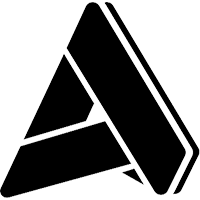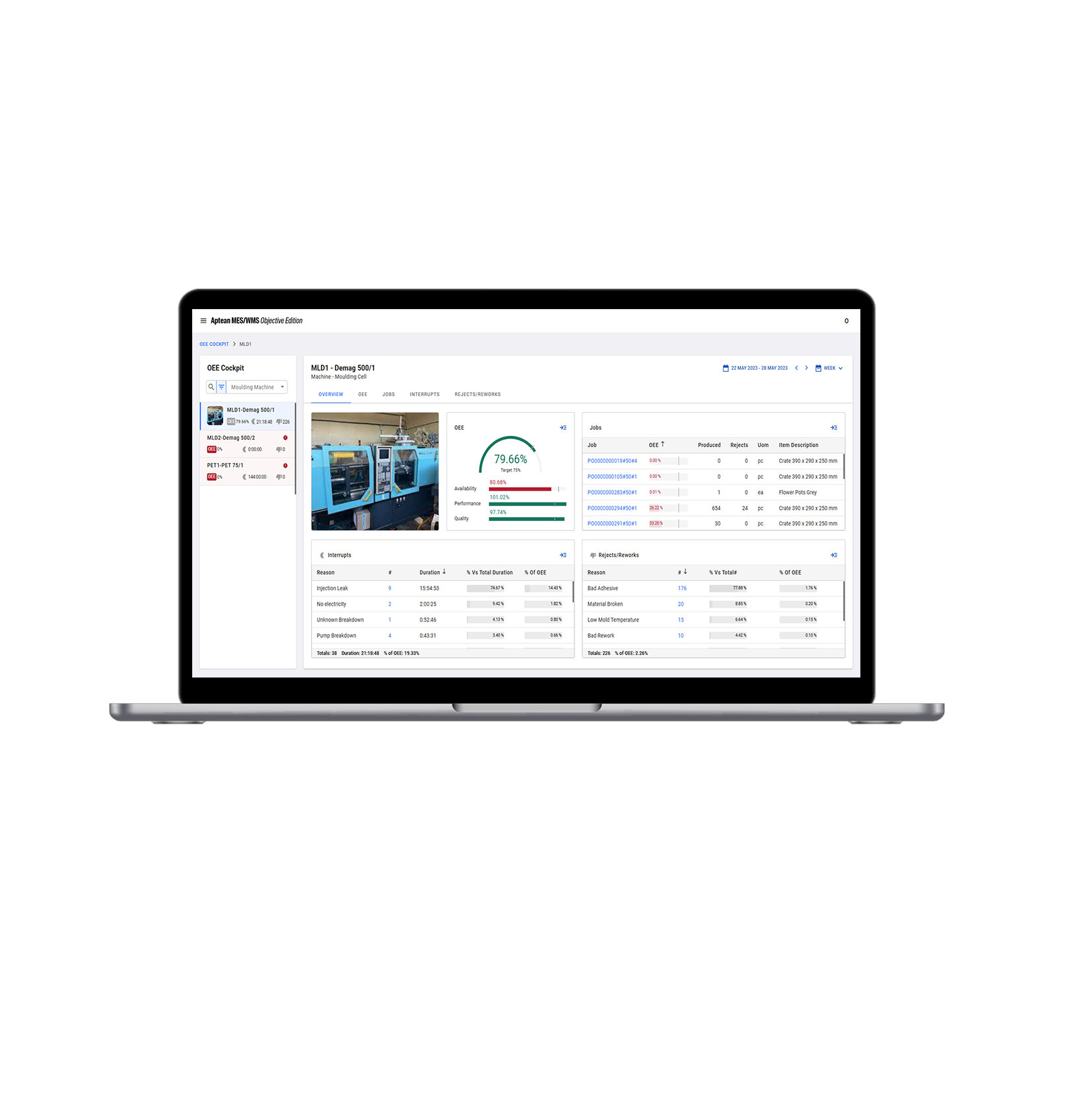Featured in this post
Elevate Your Discrete Manufacturing Operation With Industry-Specific ERP and EAM Software Solutions
Elevate Your Discrete Manufacturing Operation With Industry-Specific ERP and EAM Software Solutions
12 Dec 2023
 Aptean Staff Writer
Aptean Staff Writer 
Discrete manufacturers like you are upgrading their digital systems to strengthen their operations. How are you taking proactive steps to make your business resilient to persistent industry challenges like rising costs, supply chain disruption and evolving customer demand?
Companies embracing digital transformation see more revenue increases than those still using manual methods and legacy systems. In the Aptean 2024 Manufacturing Trends and Outlook Report for North America, 87% of manufacturers expect further growth next year by boosting their digital transformation plans.
In this blog post, we'll explore two high-impact software solutions—enterprise resource planning (ERP) and enterprise asset management (EAM)—and discover how these two systems enable discrete manufacturers to face industry challenges by streamlining processes, managing data effectively, accelerating shop floor execution and maximizing the use of manufacturing equipment. Let's discuss the benefits of industry-specific ERP and EAM solutions and their integration to improve operational performance.
Advantages of Discrete Manufacturing-Specific ERP Software
ERP software can help your company streamline and facilitate the management of core business processes while enabling efficient collection, storage and analysis of data via a centralized platform. ERP systems provide real-time information—sharing across departments, supporting your business to eliminate silos, improving productivity and driving progress.
An ERP solution built specifically for discrete manufacturing businesses is tailored to meet the unique requirements of your operations. While generic ERPs use a broad framework, industry-specific software has pre-configured modules that align closely with the workflows and demands of companies like yours without the need to make any costly customizations. Hence, the system can help you with a unified platform to manage all facets of your business
These systems also facilitate seamless coordination and communication between departments, which can improve outcomes across several operational areas, from production planning and inventory to quality control and order fulfillment. What’s more, a discrete ERP deployment can unlock many additional benefits. Read on for more.
1. Empowering Your Shop Floor Staff
Discrete manufacturers encounter unique challenges on the shop floor. Addressing these challenges demands a delicate balance of technological integration, process improvement and adaptive strategy.
Deploying purpose-built ERP software maximizes the potential of your entire shop floor operations. A discrete ERP system centralizes all work data and offers a user-friendly interface for supervisors and staff to drive collaboration on production schedules, work orders and resource management.
The combination of visibility and control facilitates better decision-making at various levels of manufacturing operations—designed to empower managers to make informed choices regarding resource allocation, production planning and maintenance schedules. Moreover, you will enable the alignment of production activities with business goals, ensuring that manufacturing operations contribute effectively to overall organizational objectives.
ERP software for discrete manufacturers empowers your shop floor personnel with one-click access to comprehensive work order information, enhancing overall operational coordination and effectiveness.
Discrete ERP shop floor benefits for leadership and managers include:
Reducing downtime by simulating "what-if" scenarios for a detailed exploration of potential repercussions on material allocation and work schedules.
End-to-end visibility of work order releases and instant monitoring of material issues to enhance operational efficiency.
Maximizing material availability at both work order and component levels—including a comprehensive breakdown of operational details.
Discrete ERP shop floor benefits for your general workforce include:
Effortless monitoring of prioritized work orders in an online dispatch list with easy-access to all essential information needed for successful task completion.
Efficiently document labor time, allocate materials for work orders and seamlessly transfer inventory to finished goods for streamlined production processes.
2. Keeping Up With Consumer Demand Through Optimized Inventory and Supply Chain Management (SCM)
The discrete manufacturing sector always aims for supply chain resilience and inventory precision. Manual stock assessments prove less efficient, paving the way for errors, shortages, excesses and elusive losses.
Discrete manufacturing extends beyond mere production and assuring your suppliers' stock reliability and quality. Just like any other business, it would help if you keep up with the ever-changing consumer demands and preferences.
With built-in data analytics, ERP systems enable your discrete manufacturing enterprise to proactively navigate market conditions through coherent and insightful forecasting. With this comprehensive data visibility across your processes, consumer behavior and data are pivotal in guiding informed strategic decision-making.
Other SCM features of an ERP software solution include:
Automated inventory management - Provides comprehensive visibility and allocation of inventory throughout your entire supply chain.
Effective communication channels - Empowers you to manage material pricing meticulously and facilitate agile delivery adjustments with suppliers.
Real-time integrated planning - Enables swift adjustments in production priorities based on material availability while enhancing operational efficiency with data-driven decisions.
Streamlined processes and improved productivity - Automation of labor-intensive processes to enhance overall productivity and mitigate labor expenses.
Lessen error rate and product-related issues - Decreased error rates in operations while addressing product issues before time-to-market.
3. Efficient Bill of Materials (BOM) Creation and Material Requirement Planning (MRP)
Accuracy is key in discrete manufacturing. It's about precisely determining the components needed for each job and giving clear instructions to the factory floor. To achieve this efficiency, investing in ERP systems tailored for discrete manufacturing is crucial. These systems, equipped with advanced materials requirement planning, allow you to operate with minimal on-site components, while still helping to prevent the risk of running out of stock and causing production delays.
A discrete manufacturing ERP can help you enhance your MRP and BOMs through:
Automated processes - ERP software automates the process of generating material requirements based on production schedules, sales orders and inventory levels. This automation ensures that the right materials are available at the right time, minimizing the risk of stockouts or overstocking.
Integrated information - The software integrates various business processes and functions, including finance, human resources and supply chain. This integration ensures that material requirements are aligned with overall business objectives and that decisions in one area do not negatively impact another.
Forecasting and planning - The platform has forecasting tools that can help you anticipate future demand for products, assisting in planning material requirements more accurately, preventing shortages or excess inventory.
Creation of Bill of Materials - ERP solutions enable the creation of BOM, which lists all the components and sub-assemblies needed to manufacture a product—ensuring that correct and detailed instructions are provided to the production team, reducing errors and improving efficiency.
of manufacturers expect further growth next year by boosting their digital transformation plans.
Utilizing EAM Systems for Discrete Manufacturing
EAM software is designed to manage your organization's capital assets effectively throughout their entire lifecycles by facilitating a preventive maintenance program, optimizing spare parts inventory and handling work orders effectively. Therefore, the software enables organizations to proactively maintain their assets, make informed, data-driven decisions and improve operations—ensuring longevity, cost savings and sustainable growth in your discrete manufacturing.
Indeed, EAM serves as a proactive maintenance solution that ensures the seamless operation of your production lines while fine-tuning regular maintenance, thereby minimizing asset downtime to ensure your shop floor can run efficiently and effectively; allowing you to spend less time and resources on maintaining assets.
In discrete manufacturing, the uniqueness of each piece of capital equipment demands a tailored approach to asset management—one that goes beyond conventional strategies. To that end, EAM utilizes data-driven insights to help provide your discrete manufacturing operations with the following advantages and more.
1. Achieving Extended Asset Lifecycles While Boosting Performance
From purchase and installation to routine maintenance and disposal of your capital equipment, EAM systems can help maximize your asset's performance through preventive maintenance and a centralized data repository for equipment specifications, manuals and warranty information.
The platform enables discrete manufacturers to manage their capital equipment through:
Proactive maintenance - When monitoring the condition of assets in real time, you can address potential issues before they lead to costly breakdowns. This proactive approach significantly accelerates productivity, enhances life expectancy of your equipment and reduces downtime.
Optimized asset utilization - By analyzing usage and performance data, you can identify underutilized assets, active deployments and decide when to repair, replace or retire equipment.
2. Controlling Maintenance, Repair and Operations (MRO) Spending
EAM systems can optimize your inventory levels, streamline maintenance processes and provide you with insights through data analytics. Overall, an EAM system can enhance operational efficiency, minimize downtime and empower your organization to make informed decisions for effective MRO spending control.
EAM software makes it possible by enhancing these processes:
Inventory management - By maintaining accurate records of MRO inventory levels, collaborating with vendors and analyzing consumption patterns, EAM helps discrete manufacturers optimize their spare parts inventory to minimize stockouts, reduce carrying costs and prevent overstocking situations.
Supplier relationship management - EAM facilitates better supplier communication by providing data on maintenance needs allowing you to negotiate favorable contracts and maintain a reliable supply chain for MRO items. The solution often simplifies collaboration with suppliers, sharing accurate information to establish more flexible and responsive supply chains. Reorder points within the system enhance the procurement process by facilitating real-time communication and automating the ordering process when inventory levels are low.
Work order administration - EAM software organizes work orders for an efficient maintenance process by automating workflows, scheduling maintenance activities and ensuring technicians have the right tools and parts when needed. Details such as job scope, required resources, scheduling and mobile access help technicians to quickly receive work orders, update progress and report issues to reduce delays.
3. Real-Time Insights to Make More Informed Business Decisions
EAM empowers discrete manufacturers to base their decisions on actionable insights derived from accurate data—improving operational efficiency, adapting to changing conditions, reducing costs and enhancing overall competitiveness in the market.
With enhanced visibility, industry-specific EAM systems present real-time dashboards for display on screens for accurate monitoring across your shop floors and facilities.
The system has additional data features such as:
Advanced analytics and reporting tools - EAM systems collect and analyze asset performance, maintenance activities and MRO spending data. You can identify trends, maintenance needs and make data-driven decisions to optimize your operations. The platform monitors key performances indicators (KPIs) to measure the performance and maintenance processes—tracking metrics such as mean time between failures (MTBF) and mean time to repair (MTTR).
Strategic planning components - The software provides manufacturers comprehensive insights into the entire asset lifecycle, facilitating long-term planning, helping them make informed decisions about capital investments, upgrades and replacements to enhance the overall efficiency of their operations.
Enhance Your Discrete Manufacturing With ERP and EAM Integration
Integrating ERP and EAM systems offers significant benefits for your discrete manufacturing operations. Together, these solutions ensure a seamless flow of information between various functions, such as production planning, inventory management and asset maintenance—leading to streamlined operations and improved overall efficiency.
In addition to the individual advantages of ERP and EAM, the operational synergy of these solutions can provide additional benefits when integrated:
Accurate financial reporting - Gain accurate financial reporting by unifying data from both systems, providing a comprehensive view of costs associated with both production and asset maintenance.
Compliance and risk management - Help ensure your discrete manufacturing processes comply with regulatory standards, identifying and mitigating risks related to both production and asset management and providing a unified system for tracking and managing compliance requirements.
Improved quality control - Allow for better traceability of materials and components used in manufacturing. Enhance quality control processes by enabling manufacturers to quickly identify and address issues, ensuring that only high-quality products reach the market.
Efficient order fulfillment - Better coordination between production and order fulfillment processes ensuring that customer orders are processed seamlessly, with accurate information on product availability, production timelines and shipping logistics.
Optimized resource utilization - Obtain a holistic view of production schedules, resource availability and asset maintenance requirements, enabling better allocation and utilization from the shop floor to the top floor.
Scalability and flexibility - As manufacturing operations grow and evolve, ERP and EAM systems adapt to changes in production volumes, product lines and asset portfolios; supporting the dynamic needs of a growing manufacturing business.
Aptean Software Solutions for Your Discrete Manufacturing Operation
ERP and EAM in discrete manufacturing create a unified platform that maximizes resource utilization, enhances asset performance and ultimately contributes to the success of your operations. These robust software solutions can help enhance visibility and empower you to combat rising costs, navigate supply chain disruptions and meet the ever-evolving demands of customers.
Including ERP and EAM, Aptean provides a suite of solutions purpose-built for discrete manufacturers, all within a unified digital ecosystem such as:
Aptean TMS - Gain full visibility of your transportation operations while reducing costs, improving efficiencies and boosting service with our TMS solutions.
Aptean Pay - Automate your credit card payment processing with our digital payment platform. Send digital invoices, accept payments immediately and reduce errors and costs.
Aptean Electronic Data Interchange (EDI) - Standardize, streamline and automate data transfers with your trading partners using our fully integrated, fully managed electronic data interchange (EDI) service.
Aptean Business Intelligence (BI) - Drive quicker and more confident decision-making across your operation with access to real-time tactical and strategic data with Aptean Business Intelligence tools.
Aptean Customer Relationship Management (CRM) - Want to nurture customer relationships and increase your competitive advantage while mitigating risk and expense? Then you need powerful CRM software from Aptean.
Aptean’s suite of digital business software helps discrete manufacturers elevate and grow their operations. Our track record of excellence is underscored by being part of the top 10 in the business process category of the most influential software companies for 2023 by the Software Report's Power 500.
Contact our experts to discover more about our discrete software solutions. Additionally, you can read our recently released case study featuring Zest Dental Solutions.
Start Transforming Your Business Today
If you’re ready to take your discrete and industrial manufacturing business to the next level, we’d love to help.



